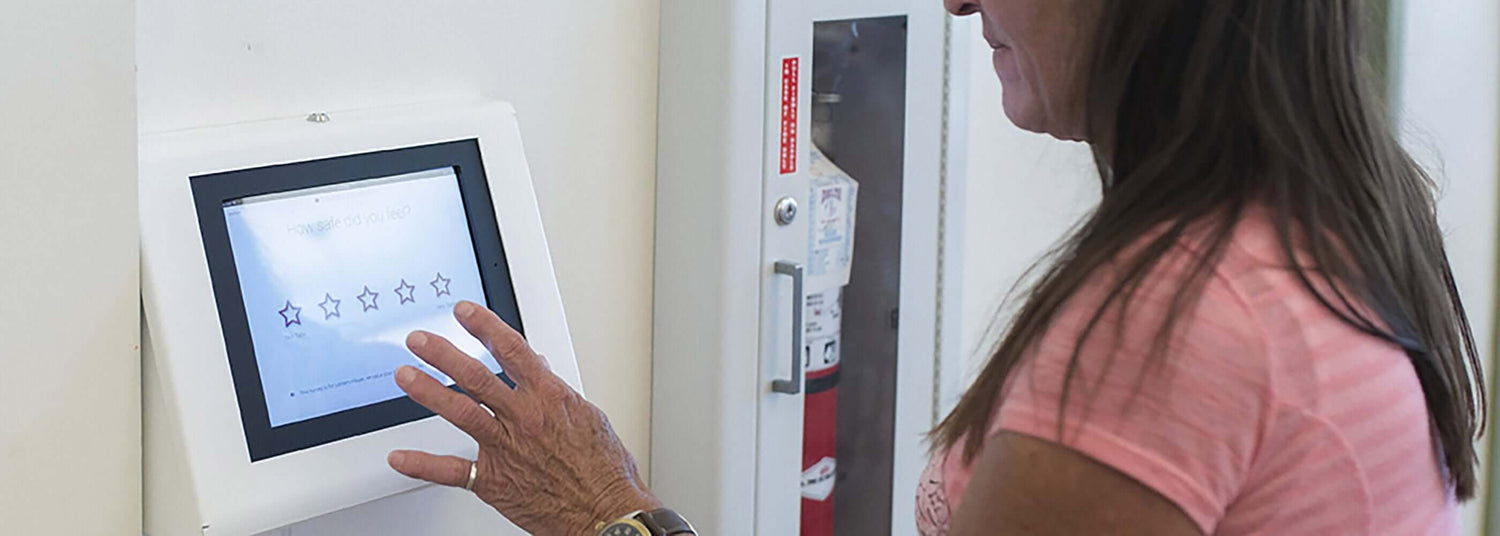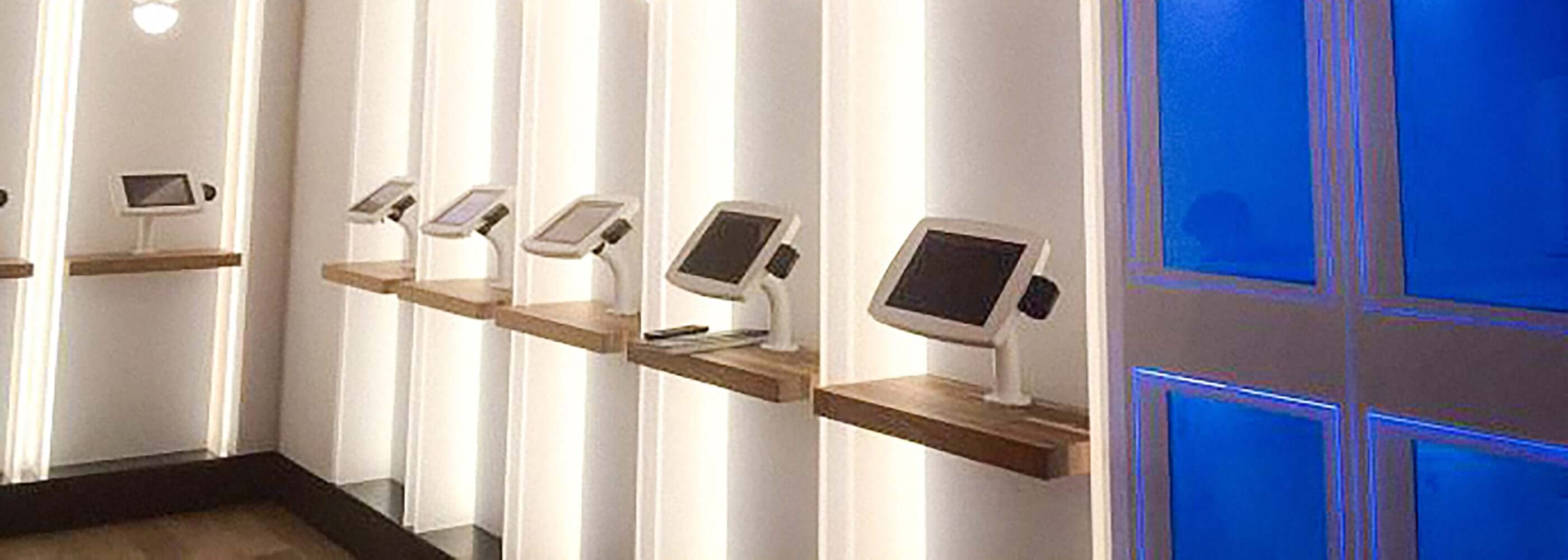How Pulse for Good Transformed Social Services with Armodilo’s Secure iPad Kiosks
Client Overview:
- Company Name: Pulse for Good
- Industry: Social Services and Non-Profit
- Location: Based in the United States
- Client Background: Pulse for Good focuses on enhancing the quality of social services through innovative feedback solutions. Their mission is to gather actionable, qualitative data from service recipients to improve the effectiveness of social services aimed at homeless and at-risk individuals.
Challenges Faced:
Gathering feedback on the quality of social services presents significant challenges, especially when dealing with vulnerable populations. Traditional methods can be costly, time-consuming, and sometimes ineffective in capturing honest feedback. Pulse for Good needed a secure, cost-effective way to collect anonymous feedback from individuals receiving social services.
Solution Implemented:
Pulse for Good partnered with Armodilo to develop a secure, wall-mounted iPad kiosk solution that addressed these challenges:
- Initial Implementation: In 2017, Pulse for Good sought to use their existing employee satisfaction survey software to gather feedback from homeless youth about municipal services. The biggest challenge was providing a secure and accessible platform for feedback.
- Kiosk Selection: After evaluating expensive options, Pulse for Good chose Armodilo’s Keyo secure wall-mounted iPad kiosks. “The Keyo kiosk fit our needs perfectly,” said Blake Kohler, co-founder. “It’s secure, aesthetically pleasing, and easy to install.”
- Security and Usability: The Keyo kiosk is designed for high-security environments, which was crucial for protecting the equipment and the data collected. “We tested the kiosk by asking people to try to remove it. It stayed securely mounted, and the iPad remained safe,” Kohler added.
Process of Implementation:
- Customization and Deployment: Pulse for Good customized the iPad kiosks to fit their specific needs and deployed them in various social service locations.
- Feedback Collection: The kiosks enabled anonymous feedback collection, providing valuable qualitative data that was previously difficult to gather.
Results and Benefits:
- Increased Data Collection: Pulse for Good successfully gathered over 1,000 submissions at less than 1% of the cost of traditional methods. The kiosks provided a reliable way to collect data from the at-risk population.
- Actionable Insights: Feedback collected led to tangible improvements in social services, such as the installation of shower curtains in a Salt Lake City shelter, enhancing privacy and security for clients.
- Cost-Effectiveness: The Armodilo kiosks offered a budget-friendly solution compared to other options, proving both effective and economical.
Client Testimonial:
“Pulse for Good’s collaboration with Armodilo has been transformative. The Keyo secure wall-mounted iPad kiosks provided a secure and effective way to collect feedback from individuals who need their voices heard. The ability to gather over 1,000 submissions at a fraction of the cost was a game-changer for us. We are excited to continue using this technology to drive positive change in social services.” – Blake Kohler, Co-Founder of Pulse for Good
Conclusion:
The partnership between Pulse for Good and Armodilo Display Solutions resulted in a groundbreaking approach to collecting qualitative data in social services. The secure, wall-mounted iPad kiosks provided a cost-effective and reliable solution for gathering anonymous feedback, leading to meaningful improvements in service delivery and client satisfaction. Pulse for Good’s innovative use of Armodilo technology exemplifies how targeted solutions can address complex challenges in the social services sector.



